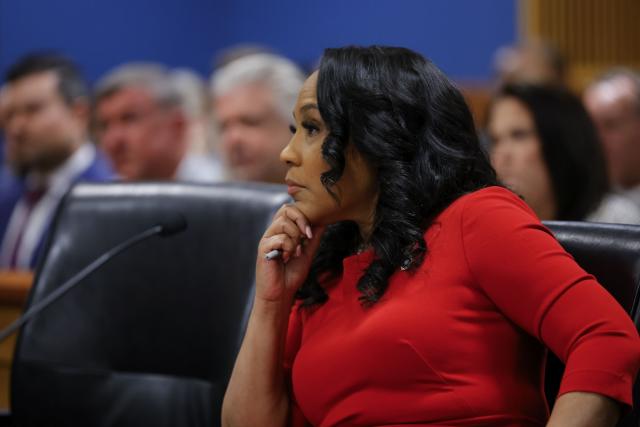Chief Justice Roberts Rejects Democrats' Request for Ethics Meeting Over Alito's Flags
Chief Justice John Roberts has turned down a meeting with Democratic senators concerned with Justice Samuel Alito's display of controversial flags.
Despite an invitation from Democratic senators, led by Senate Judiciary Chairman Dick Durbin, who sought to address ethical questions about flags displayed at the residences of Justice Samuel Alito, the chief justice has declined, as Fox News reports, highlighting the ongoing tension between judiciary independence and perceived political affiliations.
In a formal response, Roberts highlighted the judiciary's need to maintain its autonomy without political interference, stating that discussions on such matters could impede the separation of powers essential to the United States government.
Background of the Flags Controversy
The controversy began when Justice Alito was found to have an upside-down American flag at his Virginia home and an "Appeal to Heaven" flag at his New Jersey vacation home. These symbols, especially the upside-down flag, have been associated by some with political movements, including the so-called ‘Stop the Steal’ campaign.
Durbin and other committee members expressed concern that the presence of these flags could suggest a bias in judicial proceedings, particularly in cases related to the 2020 election and the Jan. 6 Capitol protests. They invited Roberts to discuss these ethical implications.
Roberts, however, declined the meeting, citing the critical importance of preserving judicial independence and the separation of powers. His letter stressed that any appearance of justices before legislative bodies to discuss conduct would be contrary to these principles.
Alito's Response and Public Perception
Justice Alito, addressing the concerns, stated that he was unaware of the upside-down flag at his Virginia home until it was brought to his attention. According to Alito, the flag was placed by his wife, who did not remove it for several days.
He further explained that his wife enjoys displaying various flags and was solely responsible for both the installation of the flagpoles and the choice of flags. Alito emphasized that her actions should not be seen as reflecting his views or affecting his judicial responsibilities.
Despite this, calls for his recusal from related Supreme Court cases continue, with critics arguing that the flags’ symbolism could compromise the perceived neutrality of the court.
Legal Implications and Judicial Ethics
Chief Justice Roberts' refusal to meet with senators is rooted in a long-standing doctrine of judicial independence, which he and other justices uphold to prevent undue influence over the judiciary by other branches of government.
Roberts' stance is seen as a defense of not only personal integrity but of the institutional impartiality of the Supreme Court. This incident has sparked a broader discussion on the symbols associated with justices and their impact on public trust in judicial impartiality.
Alito’s assertion that a reasonable person would not perceive a need for recusal has been met with skepticism from some quarters, highlighting the ongoing debate over the role of personal and public actions on judicial credibility.
Media Response and Public Discourse
Following these exchanges, media outlets have closely followed the developments, with Fox News Digital reaching out to Durbin for further comments. The story has stirred significant public interest, reflecting the complex relationship between personal freedoms and the public responsibilities of high-ranking officials.
Durbin's comments about the flags signaling bias have intensified discussions on the appropriateness of such symbols in the residences of Supreme Court justices, a topic that resonates with ongoing concerns about the politicization of the judiciary.
The issue has not only legal but also cultural ramifications, as it touches upon the symbolic power of flags and their interpretations within the current political climate.
Conclusion: Ethics, Flags, and Judicial Independence
To summarize, Chief Justice Roberts declined a request for a meeting with Democratic senators to discuss the ethical concerns raised by flags displayed at Justice Alito's residences.
Roberts emphasized the importance of judicial independence, while Alito distanced himself from the implications of the flags, attributing their display to his wife's personal interest. The refusal to engage in discussions highlights the ongoing challenges in balancing judicial impartiality with public perception.





